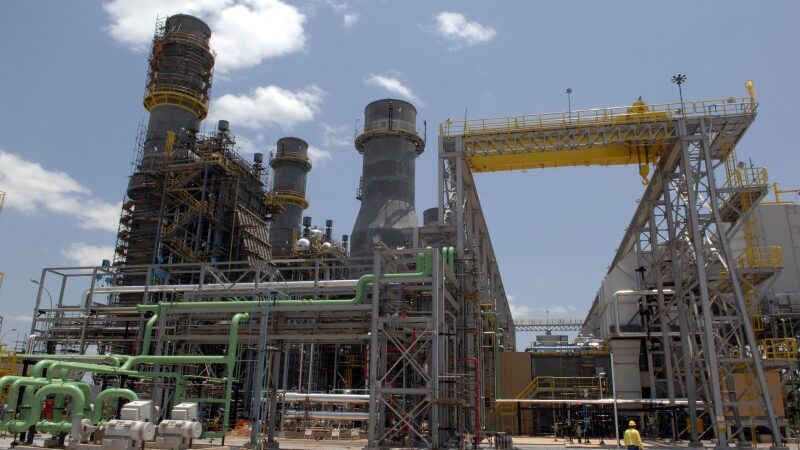
Brazil may be forced to “throw water out” of plants with costs of up to R$40/MWh and consume thermal energy at costs of up to R$2.000/MWh, generating enormous losses for the entire national economy, just because contracts with inflexible thermal plants so require
The president of ABRAPCH-Associação Brasileira de PCHs, Paulo Arbex, is concerned about the risk that the contracting of more than 5.300MW of thermal plants in September and December 2021, many at costs of more than R$2.000/MWh, will empty most of of space in demand for contracting small hydroelectric plants, which could be transacted at costs between R$280/MWh and R$350/MWh, less than 1/6 of the cost of thermal plants, with 100x lower emissions and other much smaller and reversible environmental impacts .
Read also
- Ethanol prices plummet in the Southeast, on the other hand, even in 'stability', the price of gasoline soars and the average in the region reaches almost R$ 7,00
- Usina Itaipu represents one of the most successful chapters of Brazilian diplomacy, by transforming a border impasse into a milestone for the integration and development of Brazil and Paraguay
- 123 free courses certified by Fundação Bradesco in the areas of Administration, Accounting, Education, Technology and much more
- Multinational ExxonMobil, the largest oil company in the USA, wins contracts in Brazil and calls today (23/02) for 78 vacancies in secondary, technical and higher education
- WEG closes billion-dollar contract with Eletrobras to manufacture 72 turbines of 4,2 megawatts, including logistics, assembly, commissioning, operation and maintenance services for the CGT wind farm in Rio Grande do Sul
The National Congress was convinced that the very low hiring in the last 20 years, of small hydroelectric plants, 100% renewable, with low environmental impacts and almost all reversible, needs to be reversed, and determined with the LEI 14.182 of June 12, 2021 the hiring of 2.000MW.
Consumers have been deeply harmed by the exorbitant cost of expensive and polluting thermal plants
For Arbex, “this contract needs to be fulfilled, out of respect for the National Congress, the consumer, who has been deeply harmed by the exorbitant cost of expensive and polluting thermal plants, and the environment, which has been unnecessarily degraded with the far greater impacts and irreversible effects of fossil thermals”. He argues that “the methodology of the auctions should not undermine what was determined by the National Congress in Law and sanctioned by the Presidency of the Republic”.
The executive also calculates that, according to studies by an important consultancy in the electricity sector, the contracting of more than 5.300MW of thermal plants in 2021, added to the contracting of 8.000MW of thermal plants under the Eletrobras Law, will lead to the risk of spillage from the hydroelectric plants. to up to 41% over the next 8 years.
The risk of spillage is the risk of Brazil being forced to “throw water out” of plants with costs of up to R$40/MWh and to consume thermal energy at costs of up to R$2.000/MWh, with enormous losses for the entire national economy, just because the contracts with the inflexible thermal plants demand it. He informs that ABRAPCH is preparing a letter to the Ministry of Economy, reporting the contracting of exorbitantly expensive thermal plants.
The Decennial Energy Plan (PDE 2031) does not incorporate the determination of the National Congress, since it points to only 635 MW of PCHs by 2026, a value well below the 2.000 MW determined by law.
The policy of the last 20 years of contracting expensive thermal plants, instead of a combination of renewables (hydroelectric, biomass, solar and wind), has been one of the main reasons for the explosion in consumer tariffs
Arbex asserts that the policy of the last 20 years of contracting expensive thermal plants instead of a combination of renewables (hydroelectric, biomass, solar and wind) has been one of the main reasons for the explosion in consumer tariffs, which went from being one of the highest cheapest in the world in 2000, to one of the 3 most expensive in 2022. “We are confident that the government will revert this situation, as soon as it becomes aware of it, and that it will contract the 2.000MW of small hydroelectric plants, whose importance the minister and the president have always recognized on several occasions,” he says.
Arbex explains that compliance with the law will generate around 750 MW per year of hydroelectric energy over the next 3 years, almost R$ 6 billion in investments/year, more than 50 jobs and plants that will generate cheap and clean energy for more than a year. century.
In order for hydraulic energy to be better dimensioned in Brazil, ABRAPCH is working on some claims, such as the rationalization of environmental licensing and the adequacy of tax exemption, since other renewable energies enjoy a tax burden more than 35% lower than that of hydroelectric plants.













Air Force F-16 fighters…
True friend, what they shot down were…
Air Force F-16 fighters…
I would like to know what planet you live on…
Air Force F-16 fighters…
Which genocide are you talking about? Than…
Air Force F-16 fighters…
Well... It's flying scrap... Typical...
Air Force F-16 fighters…
Venezuela's air superiority is a…
Humanity is on the right path to…
The government should invest in research to…
I had a Fiat pickup and others…
True. But there are idiots who buy it, because...
How is the market here BR???
Call me if this ad is…
Curious to know the price, conditions of…
Stop talking nonsense, Xinjiang is...